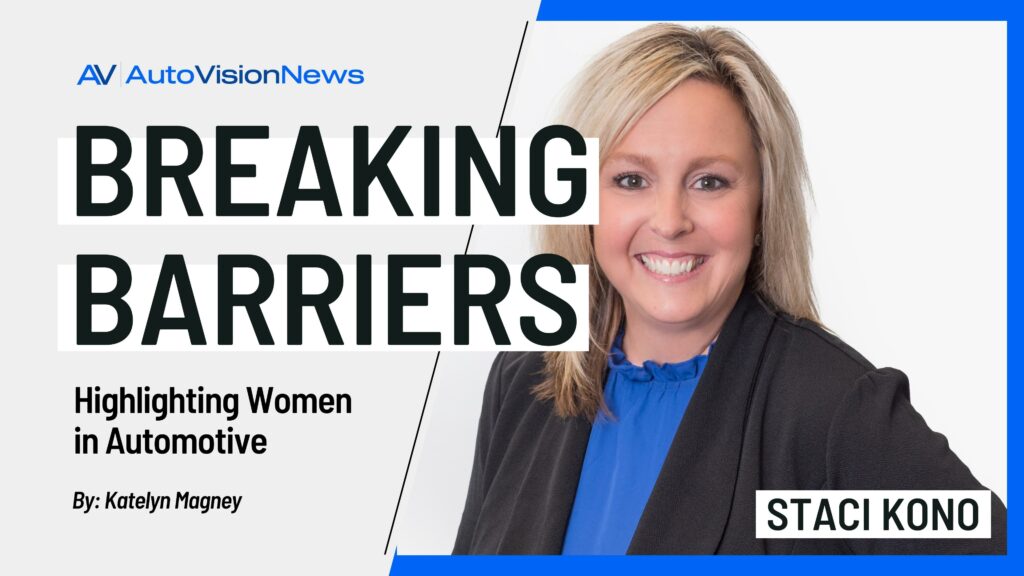Staci Kono wears a lot of hats. As a Program Manager for Crystal Group, she’s accountable for the performance of the company’s autonomous and commercial applications. She also serves as the point of contact for cross-functional teams from manufacturing and testing to quality, supply chain, customer service, and sales.
Most days, Staci can be found supporting the programs of her existing autonomous customers, onboarding new customers who are just starting in the autonomous industry, or helping a company migrate from another hardware provider over to Crystal. She also logs a lot of time traveling to customers on-site. “Crystal leadership has maintained the belief that being face-to-face with customers is critical in building lasting partnerships, and I believe this as well,” she said. “We often have customers call, asking for help – and I’ll be on a plane with my team within the next day or two, bringing ‘boots on the ground’ service to wherever they need help.”
Founded in 1987, Crystal Group, Inc. provides ruggedized compute solutions for a number of industries. The employee-owned company designs, builds, and tests rugged servers, embedded computers, networking devices, data storage, and displays for use in harsh environments. In my time at VSI Labs, I experienced a Crystal computer firsthand, where it served as the compute platform for one of VSI’s test vehicles.
Autonomous Industry Perspectives
When I asked Staci how she came into such a unique role, her answer surprised me. “I actually never dreamed this would be an industry I’d be involved in, but I am so happy to be a part of it! My curiosity and excitement for the autonomous industry has grown immensely over the last few years,” she said, adding, “While there is a stigma with autonomous vehicles not being safe, there are so many ways to improve and help others, all while being substantially safer than a human driver. Being part of a solution that not only assists with the supply chain crisis but also helps a plethora of industries alleviate challenges is where my passion is derived.”
Although she’s happy where she is, it’s not without challenges. In her own words, “It’s not an easy industry to navigate. While most are supportive of autonomous efforts in a general sense, there are plenty of naysayers who will never believe there is good intent by automating or ‘replacing’ human drivers.”
Staci is right when it comes to skeptics, both inside and outside the industry. In terms of the general public, studies show consumers are still wary of autonomous vehicles. According to IEEE, the biggest barrier to pervasive adoption of driverless cars may have nothing to do with technology but will be general public acceptance.
So how does Staci take these perspectives? “The challenge is in the mindset of finding the good in what you do each day and keeping that at the forefront of what I accomplish in the industry.”

Positive Trends & The Gender Gap
I asked Staci about her experience as a woman in a male-dominated industry, and she responded that she is proud to be here. Her outlook is optimistic, adding, “It is certainly a male-dominated field; however, I’m seeing more and more women in executive positions as the industry grows. I can only think of one or two instances where I’ve felt someone came across as dismissive towards me, but I try to remember that is their problem, not mine.”
What Staci is seeing is characteristic of a larger trend around the world. In fact, the representation of women working in STEM has gone from eight percent to 27 percent over the past 40 years. Additionally, the Research Science Institute, a prestigious STEM program for high schoolers, reports that female students will outnumber their male counterparts for the first time ever in 2022, representing 55 percent of their accepted student body.
While this is a positive sign, more work needs to be done. When we consider that women make up almost half of the U.S. workforce at 47 percent, they hold less than 28 percent of the leadership positions in tech.
“I can only think of one or two instances where I’ve felt someone came across as dismissive towards me, but I try to remember that is their problem, not mine.”
Staci Kono, Program Manager, Crystal Group
On Rushing to Grow Up & Mentorship
I asked Staci what she would tell her younger self – one of my favorite questions. “Don’t be in such a rush to grow up! Travel the world, meet new people, and find something you’re passionate about, and figure out a way to make money doing it,” she said. And Staci is right. It’s important to be passionate about your work. But you also need to make a living!
Before I let Staci go, I asked her what advice she’d give women just starting on their professional journey, and she emphasized the importance of mentoring. “Find someone who is an amazing leader or mentor and learn all you can from them. Not just about how to do a job, but how to inspire others to be their best as well.” As someone who has learned countless lessons from mentors along my own personal journey (many of whom I hope to interview for this very series!), I second Staci’s advice.
Thank you to Staci for sharing her professional journey with us. To hear more stories from women in the industry, follow us on LinkedIn or subscribe to the AutoVision News newsletter. Or, to be featured, email info@autovisionnews.com.



